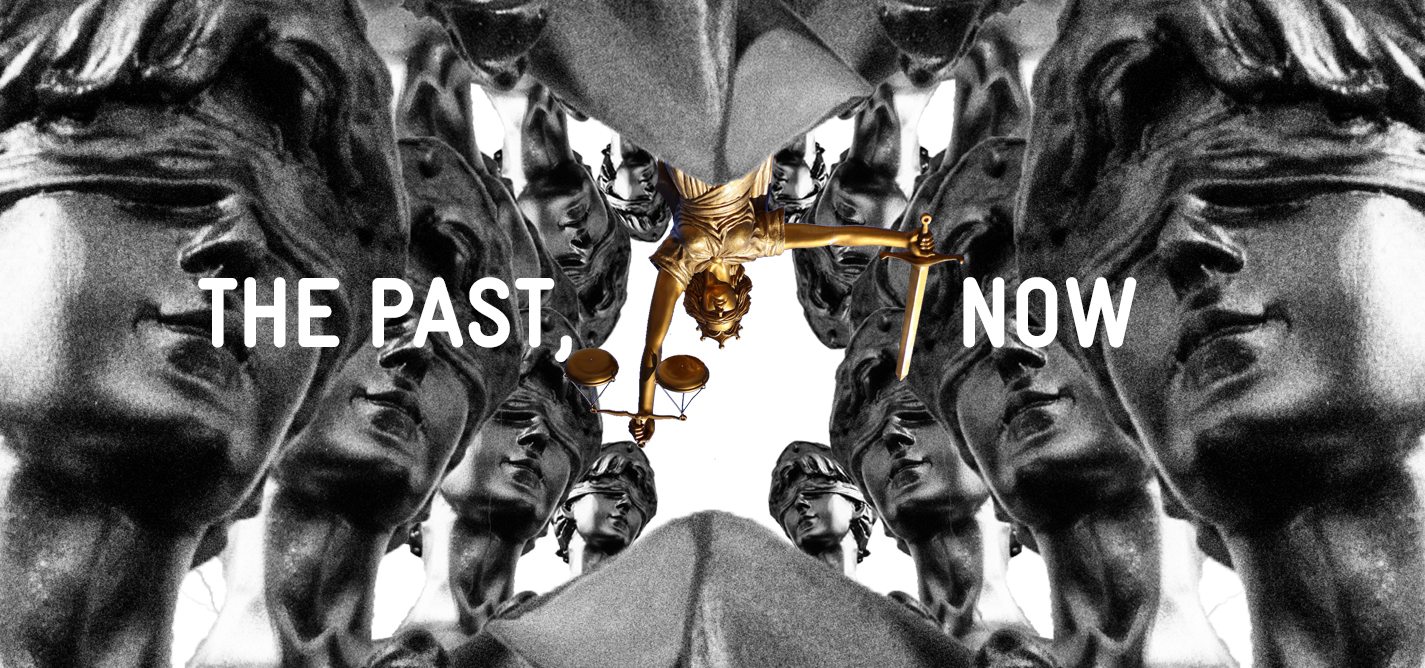Almost 20 years since the end of the Yugoslav wars, the discourse that is used to describe states in the region often focuses on moving the region forward and away from its ‘troubled past.’ But another way of framing the discussion is as follows:
Tens of thousands of unaddressed grievances from war crimes; a lack of political will to genuinely address thousands of persons that remain missing; the often deliberately slow policies for acknowledging the rights of survivors of wartime sexual violence; the failure of judicial mechanisms to bring thousands of perpetrators to justice; denial of crimes and facts established by the courts; and selective interpretations over what constitutes mass atrocities or genocide.
So, the legacies of the wars remain pertinent, unresolved, and consequently — divisive. Within increasingly polarizing and conflicting narratives, confronting and upholding principles of transitional justice and dealing with the past is imperative. This holds not only for the relations between states in the region, but also internally within them.
However, it all too often seems that within society at large, including in the mainstream public debate, such concepts have become obsolete or trivial. They are seen as empty phrases that calculating political leaders throw around in the hope of appearing “progressive” or “democratized,” while in essence being neither concerned nor committed; or they are seen merely as concepts imposed top-down, by foreign, international actors, and that lack local context, understanding and ownership.
As such, the values that transitional justice or dealing with the past could, and should, encompass, are all too often misplaced, overlooked or neglected. That is to say, transitional justice is not just a set of judicial, and non-judicial, mechanisms and measures, such as truth commissions, institutional reforms, university programs, etc. But, that fundamentally, and at its core, transitional justice is about whether the lives of citizens have become any better.
So, as we publish our latest monograph, titled “The Past, Now,” that is what many of the articles have in common — they place people, their stories, their struggles and battles, and their survivals at the heart of the conversation and ensure that stories don’t remain merely statistics in reports. What emerges as a common thread is a prolonged institutional disregard for the need for justice, whether for victims, survivors, or for society at large.
Such conversations are also placed within a regional context, and not just because the conflicts had regional dimensions, but because mechanisms addressing the legacies are often regional as well. Without this, collective memories risk being left in the hands of the political classes and so-called elites that assume self-prescribed righteousness and legitimacy to define what constitutes “truth.”
This is another aspect that forms an underlying foundation of this monograph — the need to critically oppose governing classes that are more often protagonists of fueling tensions. In fact, I recently came across the term “transitional injustice.” According to this concept, governments may publically subscribe to the idea of transitional justice while simultaneously disregarding an interest in “truth, peace or democracy,” and deliberately promoting denial, forgetting, and even violence and legitimization of authoritarianism.
It is a compelling and befitting way of summarizing the so-called efforts of many of the political leaders in the region.
For example, we have the RECOM initiative, which for years has failed to become a widely supported regional mechanism. This peaked at the summer’s London Summit, where the issue of seeking a clear political commitment to establish this regional truth commission was ultimately left off the agenda by the EU, after failing to get the backing from all regional governments.
While its falling through became a small side-note within the whole Berlin process — which is designed to further regional cooperation and maintain multilateral ties with EU member states — failure to move RECOM forward ultimately prevents citizens from accessing one form of justice, while also contributing to denial and forgetting.
And if such practices are allowed to continue, then it risks normalizing aberrations such as Serbia’s army being led, until this month, by General Ljubiša Diković, a man accused of committing multiple war crimes in Kosovo. Or convicted war criminal Vladimir Lazarević being flown back to Serbia from the Hague by governmental plane after completing a 14 year prison sentence, and continuing to lecture in Serbia’s Military Academy. Or in Bosnia and Herzegovina, where war criminals have assumed public office, including convicted war criminal Fikret Abdić, who in 2015 became mayor of Velika Kladiša after serving a 10-year prison sentence.
Meanwhile, there is also transitional injustice on a domestic level. Authoritarian tendencies — often referred to as stabilocracies, autocracies, or state captures — transcend into how dealing, confronting or documenting the past are being practiced.
To give just one example: Kosovo’s President, Hashim Thaçi — himself the subject of allegations — on one hand single-handedly establishes a National Truth and Reconciliation Commission and calls for reconciliation and improved relations between Kosovar Albanians and Kosovo Serbs, while on the other, praises himself for putting forth the idea of ‘territorial swap’ or ‘border correction’ with Serbia along predominantly ethnic lines.
That is why internally, self-critical reflection is essential to the processes of transitional justice and dealing with the past.
In Kosovo, it is about looking at how the immediate postwar period was one of widespread crime, and that to date no one has been convicted for the roughly 1,000 minority killings in this period or the roughly 100 Kosovar Albanians executed for political reasons.
Which crimes may have been conducted by individuals linked to the Kosovo Liberation Army, and which by former secret agency SHIK, or even by random individuals, has never been dealt with as part of a larger legacy of Kosovo’s own post-’99 past. The rhetoric surrounding the formation of the Specialist Chambers in 2015 shows that this continues to be a sensitive, if not stigmatized, topic.
To a large extent, the rejection of a more critical look at the post-1999 period is largely based on an underlying sense of unfairness, as if accepting the crimes committed by Kosovar Albanians would relativize guilt or responsibility.
This results partly from the fact that in Serbia there has not only been no official acceptance of collective, state responsibility, but there is also a larger societal disinterest, whereby blame is simply palmed off on the past regime. Moreover, this sense of injustice continues to be fuelled by the continuation of repressive policies and positions that have continued well after the end of the war over the the past two decades, which are contrary to any notion that the Serbian state is prepared to acknowledge the dark elements of its past.
So, denials and the politics of subjugation risk becoming the norm across the region, it is vital to remember that justice cannot take place on a selective basis — seeking it for oneself should not exclude guaranteeing it for others.
This must go to the very heart of any attempt to deal with the past. Because while the region needs to move forward, it cannot be at the expense of forgetting or not addressing what has gone before.
The stories in “The Past, Now” are a contribution in that direction.K
Feature image: Majlinda Hoxha / K2.0.

Back to monograph



This happen around the world;I come from México, and here have a less ground war against the "narcotrafic" but,the last goverments don't do it enitheng about thi!!Need work toghether!!Create commision international to defend the victims of genocide!!Integrants whit the victims and especialist!!!